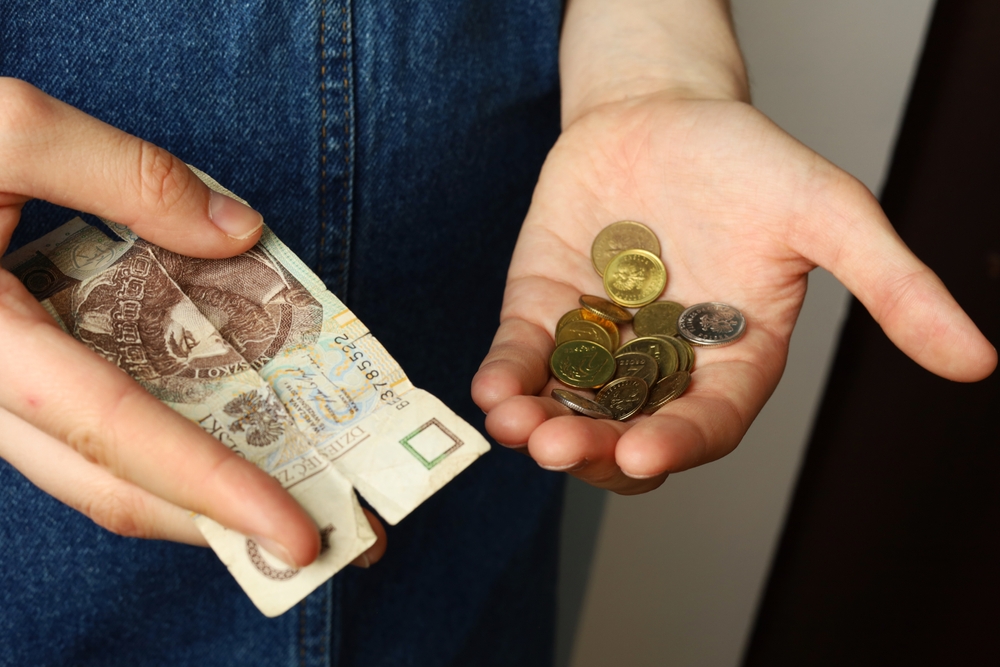New data shows that 2.5 million Poles live in extreme poverty on a daily basis, but in total, 17 million people, almost half of all Poles, live below the poverty line, the so-called “social minimum.”
This dramatic data comes from the report “Poverty Watch 2024,” prepared by EAPN Polska, the Polish Committee of the European Anti-Poverty Network.
The latest findings, describing the state of the country’s poverty situation at the end of 2023, show the worst case is the issue of extreme poverty. Here, the number of Poles experiencing this nightmare increased from 1.7 to 2.5 million in just one year — between 2022 and 2023.
Of this group, as many as 500,000 are children, which makes the situation even more dramatic.
“If a person has less money than the minimum subsistence level, their life is at risk. There is no money for housing, food, the cheapest clothes and footwear, and medicines. Such a person lives in extreme poverty,” wrote WP.pl.
The President of EAPN Polska, Dr. Hab. Ryszard Szarfenberg, explains that the drastic jump in the number of people living below the minimum subsistence level is the result of low economic growth and high inflation at the beginning of 2023. And at the same time, there have been no changes in social benefits for the poorest.
However, far more people are simply living below the poverty line, if not in extreme poverty. As many as 17 million Poles live below this threshold, which is slightly less than half of our society (the population of Poland was 37.6 million people in 2023).
“These are cases in which there may be enough money to survive, but there is not enough money for goods and services necessary for working, educating oneself, maintaining family and social ties, as well as modest participation in culture and recreation. Living below the social minimum means that there is not enough money, for example, to have access to the Internet at home, to go to the cinema once a month, to go skating or to an amusement park with a child, to pay for anesthesia at the dentist’s, to buy children’s books, etc.,” reads the report.






